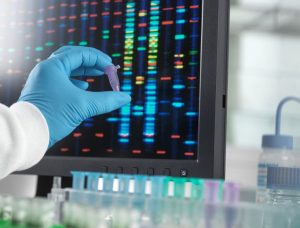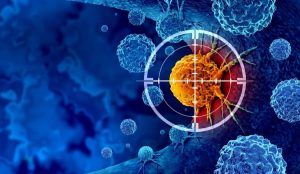
Recognizing Cancer Misinformation: Expert Insights from 2 RCCA Oncologists
“Consider the source.” It’s good advice for dealing with the sting of criticism or the allure of gossip, but two oncologists say it’s even better
HIPAA Alert: Potential Data Breach Learn More
Questions on Oncology, Hematology and/or Infusion Clinical Services due to COVID-19 Crisis – CALL 833-698-1623
Important Information for Our Patients Regarding the Coronavirus.
RCCA Providing Area Cancer Patients with Access to Care During Coronavirus Outbreak
RCCA Offering Patients Virtual Visits During Coronavirus Pandemic
You’ve heard of chemotherapy and may have heard of immunotherapy for patients with cancer. But what exactly do these treatments do, how do they work, and when and for whom are they suited?
Chemotherapy and immunotherapy both are commonly used cancer treatments that can provide a favorable outcome for many types of cancer. They can be used alone, together, or combined with other cancer treatments, such as surgery, radiation, and hormone therapy. Whether chemotherapy or immunotherapy is more suitable for a particular patient depends on factors including the person’s type and extent of cancer; overall health; and prior treatments received, if any, and response to those therapies.
Let’s look at the differences between immunotherapy and chemotherapy for cancer treatment.

Immunotherapy is formulated to enhance the body’s immune system, empowering it to recognize and destroy cancer cells.
Normally, the immune system can detect and eliminate “bad” cells – cancerous or otherwise – that pose threats to health. However, cancer cells can “hide” and escape detection by the immune system. Immunotherapy uses proteins and other substances made by the body or in a lab to strengthen the immune system and give it the boost it needs to find and destroy cancer cells.
The various types of immunotherapy include:
Immunotherapy agents can be administered:
When determining the most suitable type of immunotherapy for each case, the medical team will review the patient’s medical history, cancer type, and cancer stage.
Chemotherapy, or chemo, is a commonly employed cancer treatment that uses powerful medications to attack and kill cancer cells or prevent them from spreading. By killing cells and reducing the size of tumors, these drugs may also alleviate pain and other symptoms. Chemotherapy may be administered orally or intravenously. Topical chemotherapy also is used for some skin cancers.
Oncologists in some cases use chemo to shrink tumors before the patient receives other treatments such as surgery or radiation. This is known as “neoadjuvant chemotherapy.”
There are different types of chemotherapy drugs. They include:
When chemotherapy is indicated, the medical team will determine which chemo type, dose, and treatment frequency is most suitable for the type and stage of the patient’s cancer.
While both immunotherapy and chemotherapy have strong evidence supporting their use, several key factors determine which treatment is more likely to be effective for a given patient. These factors include:
Chemotherapy, widely used since the 1940s, is considered standard treatment for many different cancer types, including:
Immunotherapy is an innovative treatment that has become more widely available over the last 10 years. Studies have shown immunotherapy to be effective in targeting tumor growth in patients with aggressive cancers such as leukemia, lymphoma, kidney cancer, lung cancer, skin cancer, and prostate cancer. Immunotherapies are continuously being researched for use in more types of cancer, and each year the U.S. Food and Drug Administration approves new immunotherapy drugs and new uses for existing agents.
Chemotherapy targets cancer cells directly, preventing them from growing and spreading. Chemo usually is a systemic treatment, meaning it travels through the bloodstream and throughout the body.
Immunotherapy “teaches” the immune system to find and fight cancerous cells that had been eluding detection. Immunotherapy has been shown to be effective in treating certain cancers resistant to chemotherapy and radiation.
Chemotherapy treatment is an effective treatment option and generally starts to work on shrinking a tumor almost immediately. However, this effectiveness only lasts as long as the medicines remain in the body. That is why specialists administer chemo in cycles, so the patient can continue receiving the treatment benefits.
Immunotherapy is also effective, but it generally takes more time to start seeing results with this approach. Immunotherapy, however, can work for an extended time, even after the therapy has stopped. The immune system has a “memory” that allows it to recognize and remember the cancer cells, allowing it to continue fighting any new cancer cells that may develop.
Because chemotherapy is a systemic treatment, it affects both cancerous and non-cancerous cells as the drugs travel through the body. The damage to the non-cancerous cells can lead to side effects such as hair loss, nausea and vomiting, diarrhea, and fatigue, among others. These side effects are generally temporary and can range from mild to severe, depending on the chemo dose and schedule.
Because of these side effects, chemo usually is delivered on a tailored schedule, so that the patient can recover between doses.
Immunotherapy is more targeted, so it is less likely than chemo to affect non-cancerous cells. Some patients, however, may develop side effects from an overstimulated or overactivated immune system. Some adverse effects, such as nausea and flu-like symptoms, can be minor, but more severe effects such as infections, inflammation, or organ failure are possible. The medical team will monitor the patient closely for reactions to ensure safety during and after immunotherapy treatment.
In general, chemotherapy works faster because the tumors are targeted directly and can start shrinking immediately. Immunotherapy treatments usually take longer to start working, as the immune system needs an extra “push” to attack the tumors.
Occasionally, when immunotherapy is started, tumors can appear to grow because of the intrusion of immune cells into the tumors. It does not necessarily mean the cancerous cells in the tumor are increasing in size, or that the treatment is not working.
To determine if either treatment is effective, oncologists use blood tests and imaging scans, such as MRI (magnetic resonance imaging) and CT (computed tomography). Blood tests show the levels of certain hormones, enzymes, proteins, or biomarkers that can provide important indications of response to treatment. Scans enable physicians to see if tumors have shrunk, remained the same, or spread.
Oncologists and hematologists usually give immunotherapy treatments in cycles. Each cycle can last around 2 to 3 weeks. Patients generally need several cycles, as it takes time for the immune system to react. That means results may not be apparent for several months.
While immunotherapy can treat certain aggressive cancers that are resistant to other treatment, it is not always effective for all cancer types. And, as with all treatments, there is no guarantee that it will be effective for a specific patient, although physicians are able to draw on extensive data to determine which types of patients are likely to benefit from immunotherapy.
Regional Cancer Care Associates (RCCA) offers chemotherapy, immunotherapy, and other cutting-edge, evidence-based cancer treatments at 22 community-based locations throughout New Jersey, Connecticut, Massachusetts, and the Washington D.C., area. RCCA oncologists and hematologists see more than 26,000 new patients each year and provide care to more than 245,000 established patients, collaborating closely with their patients’ other physicians.
In addition, RCCA offers patients access to clinical trials, studies that may connect qualifying patients with another, potentially effective treatment option. If you’re grappling with a cancer diagnosis, request an appointment today to learn about your treatment options.
For more information or to schedule an appointment,
call 844-346-7222. You can also schedule an appointment by calling the RCCA location nearest you.

“Consider the source.” It’s good advice for dealing with the sting of criticism or the allure of gossip, but two oncologists say it’s even better

Biomarker testing is the evaluation of samples of a patient’s tumor, blood, or both to identify the genetic mutations responsible for the development of cancer,

Medical research has made tremendous strides in improving how oncologists understand and treat cancer. One of the most exciting developments is the use of radiopharmaceuticals.

Regional Cancer Care Associates is one of fewer than 200 medical practices in the country selected to participate in the Oncology Care Model (OCM); a recent Medicare initiative aimed at improving care coordination and access to and quality of care for Medicare beneficiaries undergoing chemotherapy treatment.